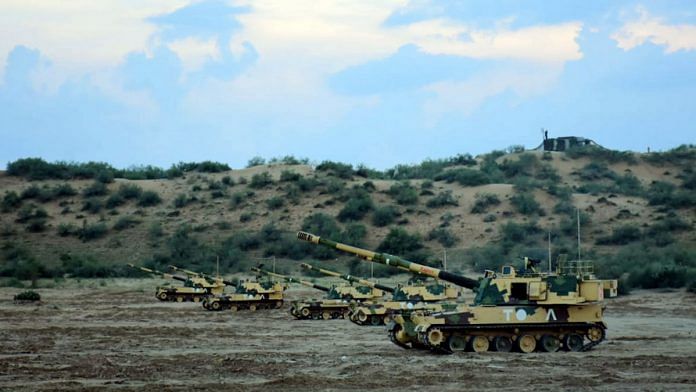Plugging for greater parliamentary scrutiny while citing legislative practice and discipline, the Ministry of Finance appears to have shot down a long-pending proposal for instituting a non-lapsable defence fund. A fixed, long-term allocation for defence modernisation has been a much-touted idea to take India’s armed forces towards greater capabilities. Such a fund would also ensure that monies allocated for defence would continue to be available for capital expenditures should they not be spent in a particular financial year. Balance amounts would accumulate and be added to the allocations of the following year. The finance ministry, obviously, doesn’t agree.
‘It is against good parliamentary practice that you take a vote from Parliament and keep aside in a separate box. Every year we must go and get the approval. It is good parliamentary discipline,’ the finance ministry officially declared. And this is in a year when more than 30 per cent of the Army’s budget lapsed from the 2021-22 Budget to the revised estimates.
For years, the Army hierarchy has been crying hoarse that two-thirds of its equipment is now of vintage value. It makes smart budgeting ever more important, given that China now brazenly encroaches and makes provocative gestures on a regular basis.
Also read: Army chief’s warning on ‘information battlefield’ must not be ignored. There’s still time
Lot has been said, but still not enough
The 15th Finance Commission (XVFC) had recommended the setting up of a non-lapsing fund for defence purchases. To be placed under the Public Account of India, and called the Modernisation Fund for Defence and Internal Security, the capital reserve would serve to cover any shortfalls from the allocations made for the armed forces. This was also in response to the amendments made in the terms of reference of the XVFC in July 2019 when the Narendra Modi government called upon it to ‘examine whether a separate mechanism for funding of defence and internal security ought to be set up and, if so, how such a mechanism could be operationalised’.
Defence budgeting is a tricky business. Especially, because it entails allocating monies for expenditures that are not always easy to see, follow, or even perceive for those who are at the disbursing end. There is, of course, the recurring and enormous amounts that go for salaries, allowances, and pensions. Enough has been commented on that fill reams of newsprint. But much still needs to be debated on that point, for there are those who continue to advocate some ‘reforms’ for this front as if the contract between soldiers and the State can be altered to suit a maladministered economy.
What is of current importance, however, is the fact that despite stressed finances, the armed forces are not going to benefit from the safety of a non-lapsable fund. The ostensible reason is that ‘traditionally, a non-lapsable fund is based on some earmarked revenue, such as goods and service tax compensation cess…We will look for an alternative mechanism to give assured funding’, said a senior finance ministry official. There are ways for the armed forces to get a committed revenue stream going so as to gain from such an ‘assured funding’.
Also read: India’s defence budget is good news for Navy, BRO; bad news for China. But there’s a catch
What’s more rewarding
Monetising assets is now the buzzword in all government departments, and as far as the armed forces are concerned, the focus is almost only on the lucrative cantonment lands. Many a politico and builder have tried to enter this potentially rewarding field, only to be driven back by a storm of protest. And rightly so. But there is another, and economically far more productive proposal that could benefit the armed forces without the ubiquitous politico-builder nexus getting involved. All that is required, however, is greater technical scrutiny, for Chinese bugs and listening devices are rumoured to be everywhere.
As the managers of the largest landholdings in the country, ownership rests with the Ministry of Defence, and the armed forces should be looking at modern technology and methods of harnessing the value of the land. The truest value of the land lies in utilising its enormous potential in generating solar power. There is no reason to sell or lease an inch of the land but merely allow the installation of millions of panels on military property. The size of the landholding is enough to assure energy to the generation as well as a revenue model that the north bloc looks for incessantly.
To ward off prying eyes, the three armed forces have enough technical workforce available to monitor the safety and security of the panels installed. The remarkable engineers and signals cadres have the capability of functioning overseers for these projects. There is enough workforce to maintain the equipment as well, with technical enhancement, of course. A project of this nature will be an enormous boost to the domestic Indian industry as well as to the consumer with the cheaper energy produced. There should, however, be a rider that panels purchased and installed must actually be Indian in entirety, not some Chinese clones masquerading as ‘Diwali-qualified’.
Manvendra Singh is a Congress leader and Editor-in-Chief of Defence & Security Alert. He tweets @ManvendraJasol. Views are personal.
(Edited by Humra Laeeq)



